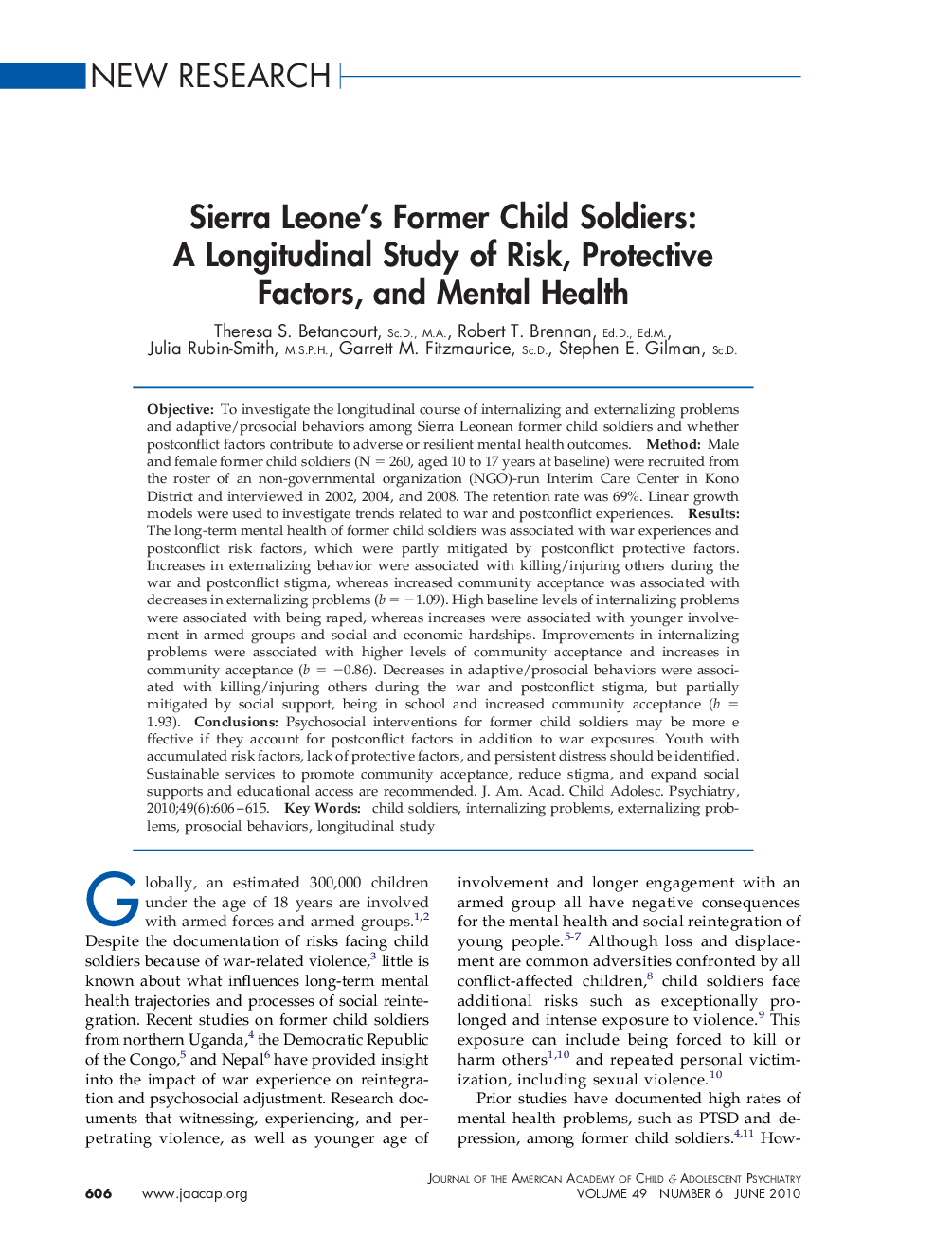| کد مقاله | کد نشریه | سال انتشار | مقاله انگلیسی | نسخه تمام متن |
|---|---|---|---|---|
| 325496 | 1432999 | 2010 | 10 صفحه PDF | دانلود رایگان |

ObjectiveTo investigate the longitudinal course of internalizing and externalizing problems and adaptive/prosocial behaviors among Sierra Leonean former child soldiers and whether postconflict factors contribute to adverse or resilient mental health outcomes.MethodMale and female former child soldiers (N = 260, aged 10 to 17 years at baseline) were recruited from the roster of an non-governmental organization (NGO)-run Interim Care Center in Kono District and interviewed in 2002, 2004, and 2008. The retention rate was 69%. Linear growth models were used to investigate trends related to war and postconflict experiences.ResultsThe long-term mental health of former child soldiers was associated with war experiences and postconflict risk factors, which were partly mitigated by postconflict protective factors. Increases in externalizing behavior were associated with killing/injuring others during the war and postconflict stigma, whereas increased community acceptance was associated with decreases in externalizing problems (b = −1.09). High baseline levels of internalizing problems were associated with being raped, whereas increases were associated with younger involvement in armed groups and social and economic hardships. Improvements in internalizing problems were associated with higher levels of community acceptance and increases in community acceptance (b = −0.86). Decreases in adaptive/prosocial behaviors were associated with killing/injuring others during the war and postconflict stigma, but partially mitigated by social support, being in school and increased community acceptance (b = 1.93).ConclusionsPsychosocial interventions for former child soldiers may be more e ffective if they account for postconflict factors in addition to war exposures. Youth with accumulated risk factors, lack of protective factors, and persistent distress should be identified. Sustainable services to promote community acceptance, reduce stigma, and expand social supports and educational access are recommended.
Journal: Journal of the American Academy of Child & Adolescent Psychiatry - Volume 49, Issue 6, June 2010, Pages 606–615